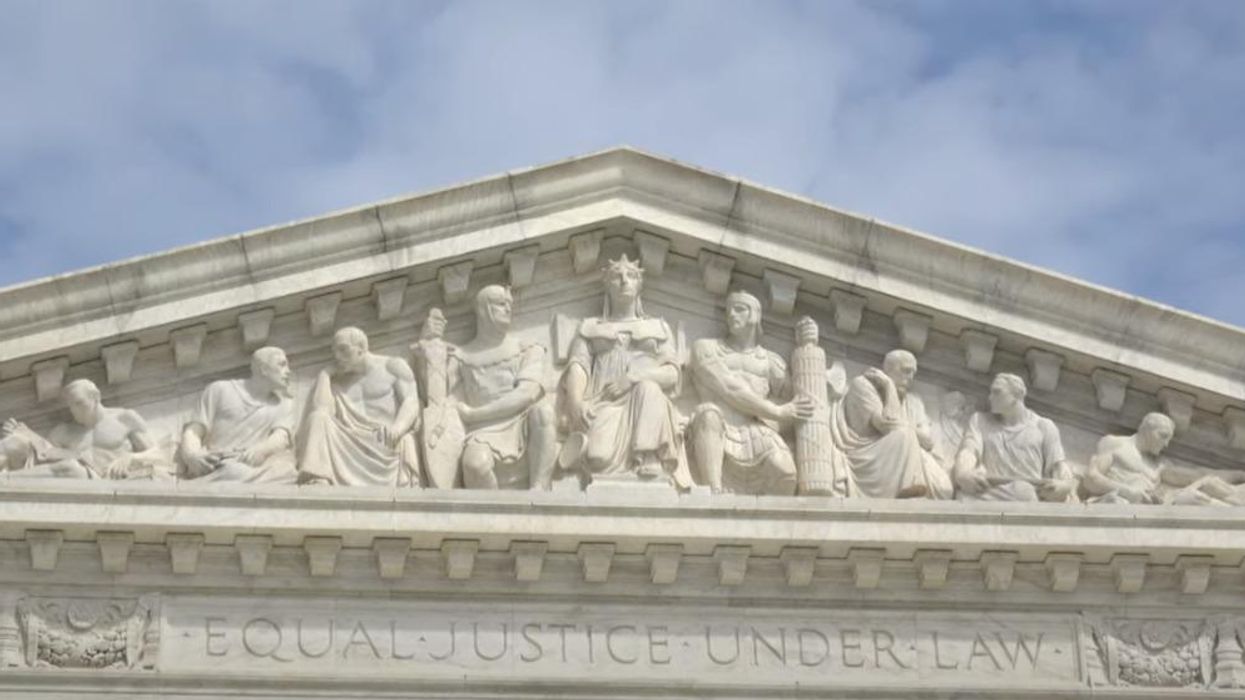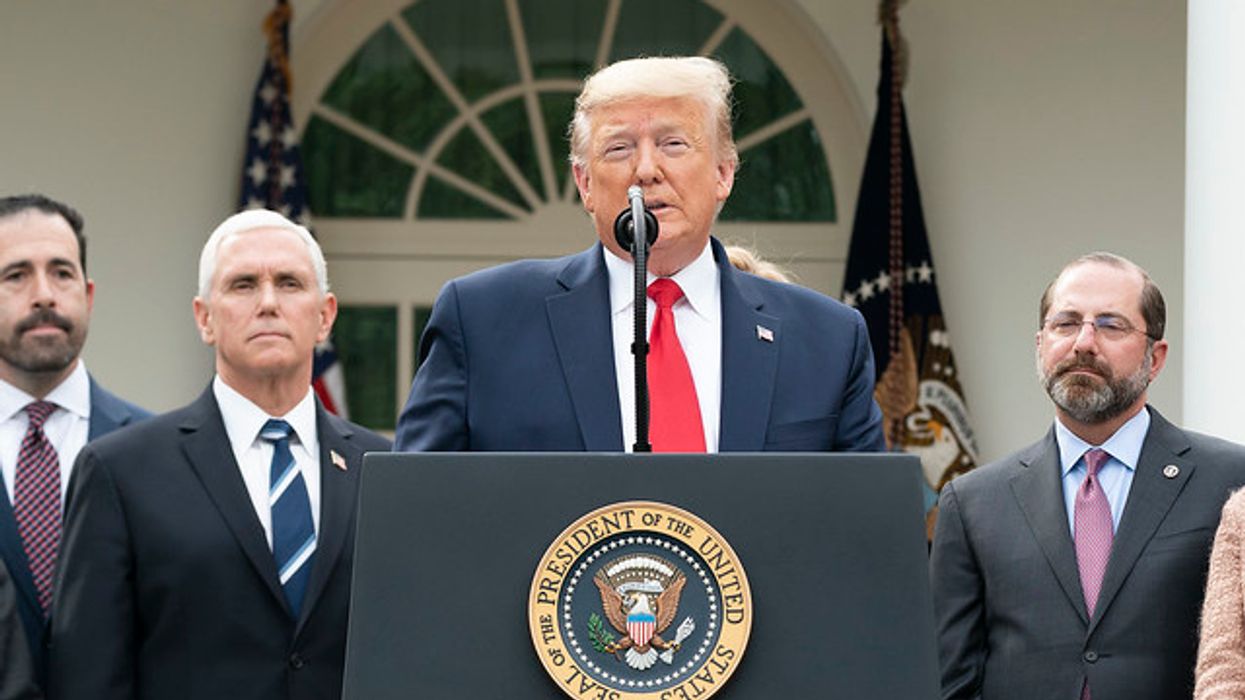Why Do Mainstream Media Pretend Conservatives Care About Children?

U.S. SUPREME COURT
In the aftermath of the Supreme Court’s decision to overturn Roe v Wade, ending the constitutional right to an abortion after almost 50 years, some conservatives and mainstream media outlets have suggested that anti-abortionists may be willing to support more generous family welfare programs to offset the financial burden of forced birth. These suggestions, whether made in bad faith or ignorance, completely misunderstand the social function of prohibiting abortion, which is to exert control over women and all people who can get pregnant.
In adopting or replicating the right’s framing of anti-abortionists as “pro-life,” these outlets mystify the conservative movement’s history and current goals. Conservatives have sought to dismantle the United State’s limited safety net since the passage of the New Deal. Expecting the movement to reverse course now is absurd, and suggesting so serves primarily to obfuscate the economic hardship the end of Roe will inflict on people forced to carry a pregnancy to term.
At The Atlantic, staff writer Elaine Godfrey profiled anti-abortion activists who purport to pay some pregnant people not to have an abortion. “Nathan Berning is one of many abortion opponents who wants, more than anything, to see a substantial expansion of the social safety net,” Godfrey writes.
“Abortion opponents who oppose a social safety net may come around to the idea that more social spending is the best way to reduce abortions,” Godfrey adds toward the end of the piece. “Restricting the supply of abortion doesn’t stop the demand for it, as studies have shown.”
The piece is sprinkled with caveats, meant to offer balance to its central claim. “If all of this sounds a little too rosy, that’s because it probably is,” Godfrey writes. As Godfrey herself admits, the people she’s profiling “are minority voices in the broader anti-abortion tent,” and “abortion opponents have hitched their wagon to a party that has fought tirelessly against state expansion.”
At best, these admissions leave the piece almost incoherent. At worst, they provide cover for the entire anti-abortion movement, leaving the impression that it may one day come around to supporting paid family leave, child allowances, universal childcare, or any of the other welfare programs being discussed. It’s also preposterous to claim a movement that has spent decades attempting to prohibit abortion rights is “against state expansion.” To the contrary, the criminalization of abortion is predicated on a massive expansion of police power, potentially including surveillance and other forms of state-backed coercion.
Ross Douthat makes a similar claim in his column at The New York Times about the end of Roe. After acknowledging that if “anti-abortion laws are permanently linked to a punitive and stingy politics,” they’ll be viable only in deeply conservative states, he argues that “there are other possible futures.”
The pro-life impulse could control and improve conservative governance rather than being undermined by it, making the G.O.P. more serious about family policy and public health. Well-governed conservative states like Utah could model new approaches to family policy; states in the Deep South could be prodded into more generous policy by pro-life activists; big red states like Texas could remain magnets for internal migration even with restrictive abortion laws.
Douthat offers no evidence to support these claims, because there is none. States “with the most restrictive abortion policies also show the weakest maternal and child health outcomes and are least likely to invest in at-risk populations,” according to research from The Commonwealth Fund. As Mother Jonespoints out, “Many of these states have roundly and repeatedly rejected badly-needed Medicaid expansions that would have vastly improved such disastrous outcomes.” And as the ACLU’s Gillian Branstetter noted on Twitter, Republicans who voted against the Women’s Health Protection Act previously voted against paid family leave and child care.
Everyone who voted against WHPA last month also refused to pass universal paid leave and child care six months ago. Anyone believing this is impossibly naive. https://t.co/K7FxUcFgPx
— Gillian Branstetter (@GBBranstetter) June 26, 2022
On Meet the Press, The Wall Street Journal’s Peggy Noonan said the Republican Party should use the end of Roe to “change itself and become a party that helps women.” The panel, to their limited credit, began laughing at her suggestion before she finished it. Powering through, she continued that the party should “change its reputation, become a party that helps women and children, becomes responsible and supportive.” Her co-panelists continued to guffaw, a much more appropriate response than the one taken by more credulous reporters and outlets.
Chuck Todd: I’m really mediocre & unwatchable
— Tara Dublin ☮️🇺🇦🌻 (@taradublinrocks) June 26, 2022
Peggy Noonan: Hold my Kool-Aid
pic.twitter.com/AcfUpuDFAn
On the day of the decision, Politicowrote that conservative enthusiasm for economic policies to support people after they give birth is “an emerging theme in the Republican Party,” citing statements from Sens. Josh Hawley (R-MO), Marco Rubio (R-FL), and Rick Scott (R-FL). (Hawley’s wife is a prominent anti-abortion activist and lawyer.) Temporary populist rhetoric notwithstanding, there is no reason to believe Republican senators are even remotely interested in addressing and alleviating poverty and economic precarity in the United States.
Nevertheless, these kinds of stories have circulated for weeks following the leakedRoe opinion in early May. “With Roe at risk, GOP faces pressure to support families after a birth,” read a headline in The Washington Post’s news section shortly after the leak. Just days before the final decision was handed down, National Review editor Ramesh Ponnuru wrote a column jointly published by The Washington Post and Bloomberg arguing for “A Conservative Plan to Strengthen Families, Post-Roe.” Ponnuru expressed optimism that Republicans may soon begin to support policies like a child allowance – which, crucially, would not apply to people without a job.
One need only look at the existing anti-abortion movement’s reaction to the Roe ruling to see where its actual energy is going – and it’s not to providing economic aid for pregnant poor people. In a piece published two days after the decision, The New York Times captures the movement’s post-Roe priorities well:
In Florida, where the Legislature recently passed a ban on abortion after 15 weeks, lawmakers pushed Gov. Ron DeSantis to call a special session to consider a ban after six weeks.
The National Right to Life Committee promoted model legislation for state bans and renewed calls toward its original, bigger goal of a constitutional amendment banning abortion nationwide. It and other anti-abortion groups also pledged to punish prosecutors who have said they would not enforce abortion bans.
They promised other steps to limit access to abortion, including pushing for legislation prohibiting people from crossing state lines to get abortions or obtaining abortion pills.
Kristan Hawkins, president of the anti-abortion group Students for Life of America, said its primary focus would now be on preventing pregnant women from getting abortion pills as a workaround to bans. It had also discussed proposed legislation, modeled along the lines of a Texas law that since September has banned abortion after six weeks, that would allow ordinary citizens to sue anyone who provided abortion services across state lines.
The anti-abortion movement is organized around punishing pregnant women and those who provide them with health care. It has been that way from its inception. There is no reason to believe it will change now, and every reason to believe it will become more radical.
Reprinted with permission from Media Matters.


